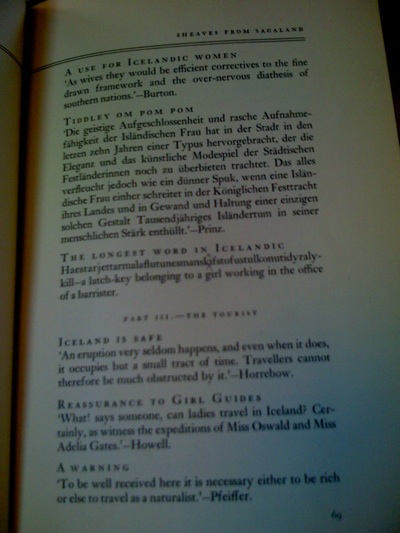“Being desirous to furnish himself with a Dog he applied himself to buy one of this Martin, who had a Bitch with Whelps in her House. But she was not letting him have his choice, he said, he would supply himself then at one Blezdels. Having mark’d a Puppy, which he lik’d at Blezdel’s, he met George Martin, the Husband of the Prisoner, going by, who asked him, Whether he would not have one of his Wife’s Puppies? and he answered, No. The same Day, one Edmond Eliot, being at Martin’s House, heard George Martin relate, where this Kembal had been, and what he had said, whereupon Susanna Martin replied, If I live, I’ll give him Puppies enough! Within a few days after, this Kembal, coming out of the Woods, there arose a little Black Cloud in the North West and Kembal immediately felt a force upon him, which made him not able to avoid running upon the stumps of Trees, that were before him, albeit he had a broad, plain Cart-way, before him; but tho’ he had his Ax also on his Shoulder, to endanger him in his Falls, he could not forbear going out of his way to stumble over them. When he came below the Meeting House, there appeared unto him, a little thing like a Puppy, of a Darkish Colour; and it shot backwards and forwards between his Legs. He had the Courage to use all possible Endeavours of Cutting it with his Ax; but he could not Hit it; the Puppy gave a jump from him, and went, as to him it seem’d into the Ground. Going a little further, there appeared unto him a Black Puppy, somewhat bigger than the first, but as Black as a Cole. Its Motions were quicker than those of his Ax; it flew at his Belly, and away; then at his Throat; so, over his Shoulder one way, and then over his Shoulder another way. His Heart now began to fail him, and he thought the Dog would have tore his Throat out. But he recovered himself, and called upon God in his Distress; and naming the Name of JESUS CHRIST, it vanished away at once. The Depondent spoke not one Word of these Accidents, for fear of affrighting his Wife. But the next Morning, Edmond Eliot, going into Martin’s House, this Woman asked him where Kembal was? He replied, At home a Bed for ought he knew. She returned, They say, he was frighted last Night. Eliot asked, With what? She answered, With Puppies. Eliot asked, Where she had heard of it, for he had heard nothing of it? She rejoined, About the Town. Altho’ Kembal had mentioned the Matter to no Creature living.”
(from “Cotton Mather’s Wonders of the Invisible World,” pp. 96–98 in William Carlos Williams’s In the American Grain.)
